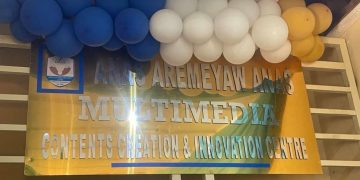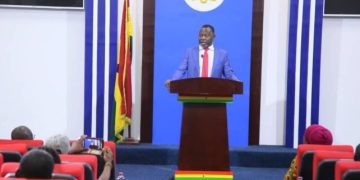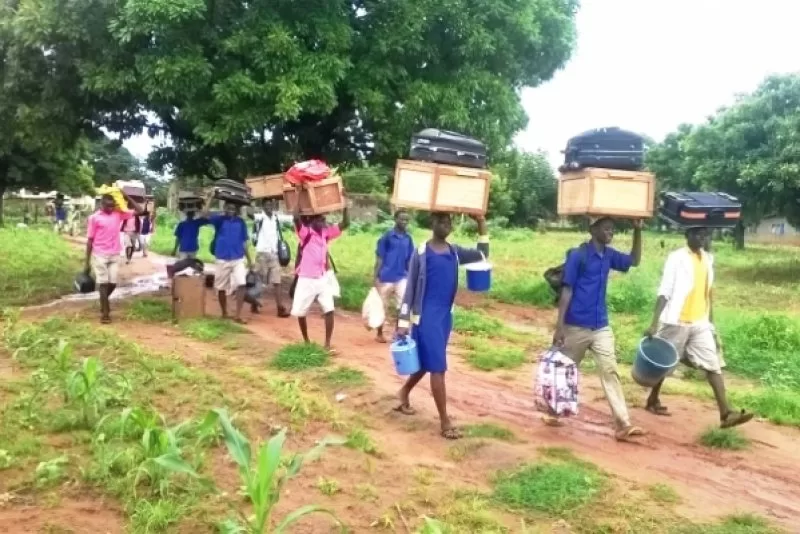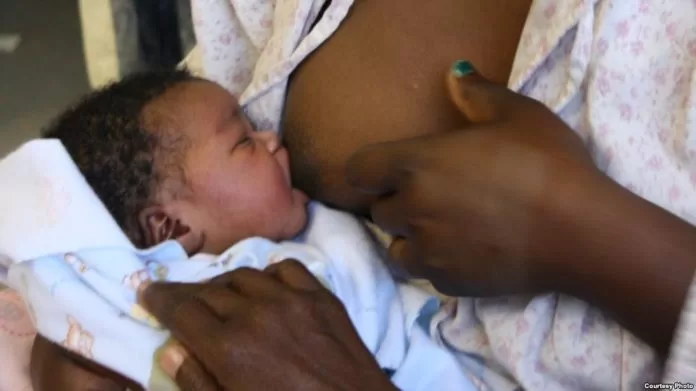 The State of the Nation Address (SONA) is a special annual event on the calendar of Parliament, in which Presidents of Ghana meet a special constitutional obligation to keep the Ghanaian people informed about the state of the nation, its achievements, challenges and prospects. Consistent with this expectation, President Nana Akufo-Addo delivered his third SONA to Parliament on 21st February 2019, covering a wide range of issues of national interest from finance, chieftaincy and regional developments, democracy and local governance, and the economy including the social environments of the economy.
Particularly, this paper is focused on cross-examining the Presidents’ message on the education and offers suggestions. It was clear from the Presidents’ address that, he is convinced education is the surest bet to amassing prosperity for the Ghanaian people, having hinted that no effort is going to be spared to make education the best and fit for the needs and challenges of the 21st century. This is heartwarming. However, as a norm, the IFEST won’t accept the issues on face value, but will subject them to a rigorous scrutiny and verification.
Firstly, the President spoke about the curriculum, in recognition that it is the heartbeat of education. He said:
“In September 2019, a new standard-based curriculum will be rolled out from kindergarten to class 6 in primary schools. The curriculum has drawn upon the best practices from all over the world, and will focus on making the Ghanaian children confident, innovative, creative-thinking, well-rounded patriotic citizens. Mathematics, Science, Reading, Writing and Creativity are therefore at the heart of this new curriculum”. (SONA, 2019)
It seems to the IFEST that this impending reform that the President speaks of is a campaign that is consistent with a global push for a working world class education, to make the future generation of leaders capable to face the 21st century and future problems. From global education conversations, the latest understanding is to shift focus to cultivating not alone academic or subject knowledge in children but also, essentially, soft skills that will support success now and for the future. It seems that teaching soft skills has never been important as it is now. Previously, the Ministry and NaCCA have given indications of these initiatives, for which reason the IFEST has followed developments in this area very keenly. For example, the IFEST can confirm the design of a new standard based curriculum and assessment with emphasis on selected soft skills and using pupil standards and a National Education Assessment. Further, teachers are expected to undergo relevant trainings to be able to enact the new curriculum, including the engendering effective teaching resources by NaCCA. Whilst this is welcoming, and we wish to commend the efforts of Government, the IFEST raises some concerns, including whether the design of the new curriculum comprehensively identified all the soft skills that our children need to be successful in critical aspects of all occupations and what clear roadmap and indicators are there to measure proficiency in these soft skills. Will there be skill instructions, different from a normal subject instruction, or they are fused so that the curriculum and learning experiences will potentially emphasize these non-cognitive skills? Will these skills be assessed? In Japan, for example, pupils’ curiosity and confidence are assessed. Further, trends in incorporating skill development in the curriculum has persistently shown that efforts to developing skills in children could be unsuccessful, noting also certain conditions successful the development of non-cognitive skills in schools, namely technology, teachers, parents, teaching style, etc. For, example, a survey by The Price’s Trust in UK showed that close to half (43%) of young people feel their soft skill id not good enough even though soft skill development is entrenched in instructions in UK schools. The IFEST raises these concerns, in part, due to the literature dynamics surrounding soft skills development, and in other part, due to the lack of sight of any policy documents that spell out these details for the new curriculum.
Following these concerns, the IFEST makes the following suggestions for the kind consideration of all relevant authorities (MoE, NaCCA, MoI, etc.):
The State of the Nation Address (SONA) is a special annual event on the calendar of Parliament, in which Presidents of Ghana meet a special constitutional obligation to keep the Ghanaian people informed about the state of the nation, its achievements, challenges and prospects. Consistent with this expectation, President Nana Akufo-Addo delivered his third SONA to Parliament on 21st February 2019, covering a wide range of issues of national interest from finance, chieftaincy and regional developments, democracy and local governance, and the economy including the social environments of the economy.
Particularly, this paper is focused on cross-examining the Presidents’ message on the education and offers suggestions. It was clear from the Presidents’ address that, he is convinced education is the surest bet to amassing prosperity for the Ghanaian people, having hinted that no effort is going to be spared to make education the best and fit for the needs and challenges of the 21st century. This is heartwarming. However, as a norm, the IFEST won’t accept the issues on face value, but will subject them to a rigorous scrutiny and verification.
Firstly, the President spoke about the curriculum, in recognition that it is the heartbeat of education. He said:
“In September 2019, a new standard-based curriculum will be rolled out from kindergarten to class 6 in primary schools. The curriculum has drawn upon the best practices from all over the world, and will focus on making the Ghanaian children confident, innovative, creative-thinking, well-rounded patriotic citizens. Mathematics, Science, Reading, Writing and Creativity are therefore at the heart of this new curriculum”. (SONA, 2019)
It seems to the IFEST that this impending reform that the President speaks of is a campaign that is consistent with a global push for a working world class education, to make the future generation of leaders capable to face the 21st century and future problems. From global education conversations, the latest understanding is to shift focus to cultivating not alone academic or subject knowledge in children but also, essentially, soft skills that will support success now and for the future. It seems that teaching soft skills has never been important as it is now. Previously, the Ministry and NaCCA have given indications of these initiatives, for which reason the IFEST has followed developments in this area very keenly. For example, the IFEST can confirm the design of a new standard based curriculum and assessment with emphasis on selected soft skills and using pupil standards and a National Education Assessment. Further, teachers are expected to undergo relevant trainings to be able to enact the new curriculum, including the engendering effective teaching resources by NaCCA. Whilst this is welcoming, and we wish to commend the efforts of Government, the IFEST raises some concerns, including whether the design of the new curriculum comprehensively identified all the soft skills that our children need to be successful in critical aspects of all occupations and what clear roadmap and indicators are there to measure proficiency in these soft skills. Will there be skill instructions, different from a normal subject instruction, or they are fused so that the curriculum and learning experiences will potentially emphasize these non-cognitive skills? Will these skills be assessed? In Japan, for example, pupils’ curiosity and confidence are assessed. Further, trends in incorporating skill development in the curriculum has persistently shown that efforts to developing skills in children could be unsuccessful, noting also certain conditions successful the development of non-cognitive skills in schools, namely technology, teachers, parents, teaching style, etc. For, example, a survey by The Price’s Trust in UK showed that close to half (43%) of young people feel their soft skill id not good enough even though soft skill development is entrenched in instructions in UK schools. The IFEST raises these concerns, in part, due to the literature dynamics surrounding soft skills development, and in other part, due to the lack of sight of any policy documents that spell out these details for the new curriculum.
Following these concerns, the IFEST makes the following suggestions for the kind consideration of all relevant authorities (MoE, NaCCA, MoI, etc.):
- It is important that if there are policy document(s) on the design of the new curriculum specifically addressing the issues raised and beyond, it is publicly shared (in due time) via all retrievable means or platforms.
- The general public need education of the entire reform, given the level of agitations that have met with educations reforms in this country.
- It is also important that stakeholders are educated on the conceptual and philosophical basis for which (out of many identified soft skills) the few soft-skills selected merit incorporation in our school curriculums.
- The relevant conditions that underlie a successful implementation and meeting of reform goals should be given a significant attention beyond what we have always seen and known as a nation. In this manner, all stakeholders (especially parents since they have massive role in developing soft skills) who will deservedly be furnished with knowledge about the reform should equally be deeply imbibed with their roles and responsibilities towards the reform and reform goals.
 With secondary education currently free, the legislation only draws a firm conclusion that basic education is still free in Ghana, but with additional more years of learning opportunity. This further suggests that there is (1) increased minimum forms of education a Ghanaian child is entitled; and (2) increased human resource value for these children. For instance, if the resource value of the Ghanaian child who received free basic education previous ended with a Junior High School Certificate, the same child now has an improved resource value at no cost with a Secondary School Certificate. These outcomes of this policy initiative will potentially, partly, meet expectations underlining the UN’s SDG 4, i.e., education for all. For instance, over 180,000 student who would truncated education at junior high level in 2018 are now in school acquiring further learning opportunities. The quality bit that UN’s goal will potentially be addressed with the curriculum reform, the teacher education reform, resource improvement reform and accountability reforms that the IFEST found as ongoing. Whilst reforms come in handy, they may fail to achieve the potentials for which they been designed if the importance of accountability is, in anyway, downplayed, which has been evidential with reforms in previous years in this country. The sector has seen many well-intentioned reforms that failed to achieve the full length of results imagined due to poor accountability and enforcement structures. It is particularly praiseworthy to learn that included in the ongoing reforms in the sector is accountability frameworks and regulatory bodies such the institutionalization of a National Inspectorate Board (NIB), National Teaching Council (NTC), and a Reform Secretariat to coordinate the activities of the reforms. The following recommendations are also made:
With secondary education currently free, the legislation only draws a firm conclusion that basic education is still free in Ghana, but with additional more years of learning opportunity. This further suggests that there is (1) increased minimum forms of education a Ghanaian child is entitled; and (2) increased human resource value for these children. For instance, if the resource value of the Ghanaian child who received free basic education previous ended with a Junior High School Certificate, the same child now has an improved resource value at no cost with a Secondary School Certificate. These outcomes of this policy initiative will potentially, partly, meet expectations underlining the UN’s SDG 4, i.e., education for all. For instance, over 180,000 student who would truncated education at junior high level in 2018 are now in school acquiring further learning opportunities. The quality bit that UN’s goal will potentially be addressed with the curriculum reform, the teacher education reform, resource improvement reform and accountability reforms that the IFEST found as ongoing. Whilst reforms come in handy, they may fail to achieve the potentials for which they been designed if the importance of accountability is, in anyway, downplayed, which has been evidential with reforms in previous years in this country. The sector has seen many well-intentioned reforms that failed to achieve the full length of results imagined due to poor accountability and enforcement structures. It is particularly praiseworthy to learn that included in the ongoing reforms in the sector is accountability frameworks and regulatory bodies such the institutionalization of a National Inspectorate Board (NIB), National Teaching Council (NTC), and a Reform Secretariat to coordinate the activities of the reforms. The following recommendations are also made:
- The capacity (in terms of human and material resources) of the accountability structures and the regulatory bodies should be rendered at optimal level at all cost if they can meet their mandates and subsequently ensure that the reform and national objectives are achieved.
- The accountability structures and regulatory bodies ought to be strict in executing their mandate, they should will the enforcement powers they need by being extremely professional and committed at all times.
- The government may want to diversify its sources of funding to accommodate the expanded government expended that accompanies free education.
- All technical and vocational institutes should be rehabilitated too, to offer complementarity role to the overall government’s political will.
- Student allowance schemes be designed to stimulate interest and enthusiasm in the TVET sector and Agriculture sector, as it is in the teaching and nursing training institutions.
- Efforts should be made by the Ministry of Education, Ministry of Manpower Development and Employment, Ghana Education Service and the Technical Vocational Education and Training Institutes to sensitise the public on the role and importance of TVET.
- Government should institute annual TVET Awareness Week, to emphasize the importance of TVET in order to erase the negative public perception of TVET.
 STEM related careers are one of the rapidly growing areas of viable employment and directing significant attention to STEM fields worldwide. However, the subsector has not received the maximum attention in Ghana. Like TVET, STEM education is not highly patronized by young Ghanaians, owing to many factors. Lack of resources and equipment is noted as one of the biggest challenges facing STEM education. Evidence from UNESCO suggests that Ghana is one of four African countries that has a massive dearth of functional laboratories (science andd ICT) in school. Further, the subsector is also faced with a staggering gender inequality gap. The current initiative to build STEM centres will add to previously designed interventions and policies to improve and address challenges in the area. The appointment of a Presidential Advisory Council is also commendable. Meanwhile the following suggestions are offered:
STEM related careers are one of the rapidly growing areas of viable employment and directing significant attention to STEM fields worldwide. However, the subsector has not received the maximum attention in Ghana. Like TVET, STEM education is not highly patronized by young Ghanaians, owing to many factors. Lack of resources and equipment is noted as one of the biggest challenges facing STEM education. Evidence from UNESCO suggests that Ghana is one of four African countries that has a massive dearth of functional laboratories (science andd ICT) in school. Further, the subsector is also faced with a staggering gender inequality gap. The current initiative to build STEM centres will add to previously designed interventions and policies to improve and address challenges in the area. The appointment of a Presidential Advisory Council is also commendable. Meanwhile the following suggestions are offered:
- Optimal resourcing of schools to teach STEM related subjects should be s
- Significant attention be given to training and building the capacity of STEM teachers, particularly in the primary and junior high schools.


























